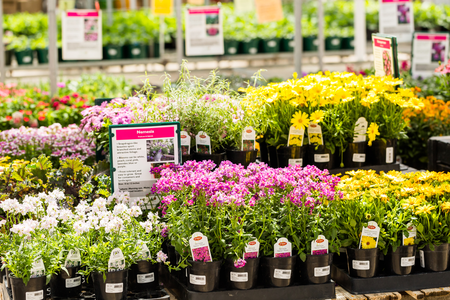How to optimise your website for garden keywords
As a garden centre owner, it's essential to strengthen your online presence. One of the most effective ways to do this, is by optimising your website for relevant keywords in the garden retail industry. By applying thoughtful search engine optimisation (SEO) techniques, your website can be more findable to potential customers searching for garden-related products or services. This article will discuss valuable tips and strategies to optimize your website and increase organic traffic.
Keyword Research
It all starts with thorough keyword research. Identify the keywords your target audience will likely use when searching for garden-related information. Use tools such as Google Keyword Planner, SEMrush, or Ahrefs to discover relevant keywords. Pay attention to search volume, competition, and keyword relevance to your business. Make sure to use a mix of broad and specific keywords to expand your reach and attract targeted traffic.

Website Content Optimisation
Strategically integrate the chosen keywords into your website's content. Write valuable and informative articles, blog posts, and product descriptions that naturally and relevantly incorporate the keywords. Ensure that you use the keywords in page titles, subheadings, alt tags of images, and meta descriptions. However, avoid keyword stuffing, as it can negatively impact user experience and search engine rankings.
Do you need assistance obtaining important keywords related to your product, product category, or theme? Our Online Marketers are happy to help. Contact Robert and ask him for Keyword Research.
Metadata Optimisation
Metadata plays a crucial role in communicating the content of your web pages to search engines, such as Google. There are several types of metadata that are relevant to SEO, including:
- Meta Title: This is the title displayed by search engines in search results. It should be an accurate and concise description of the page's content. Including relevant keywords in the meta title helps increase the visibility of the page.
- Meta Description: This brief summary of the page's content is also displayed in search results. The meta description aims to give users an idea of what to expect when they click on the link. Make the meta description appealing and informative to encourage clicks.
- Alt Tags: Alt tags (alternative text) are used to describe images on a webpage for people with visual impairments and for search engines. Include relevant keywords in alt tags to improve image indexing by search engines.
Ensure that each page has a unique and relevant meta title and meta description. Also, provide alt tags for every image to help both visually impaired individuals and search engines understand the image's content. This gives search engines a better understanding of your page and increases the chance of attracting relevant visitors.
Improving Website Architecture
A good website architecture enhances user experience and makes it easier for search engines to crawl and index your site. Establish a clear and logical structure where each page on your website is accessible within a few clicks. Use internal links to simplify navigation and distribute the value of your content across different pages. Don't forget to generate an XML sitemap and submit it to search engines to ensure full indexing of your website.

Optimising Page Speed
Fast page load times are crucial for both user experience and SEO. Visitors expect a fast and responsive website, so optimise the loading speed of your pages. Compress images, minimize the use of external scripts, and employ caching techniques to improve your website's performance. Tools like Google PageSpeed Insights can provide insights into your current website speed and offer suggestions for improvement. We have listed three tips for you to improve your pagespeed here.
Get started with website optimisation!
Optimising your website for garden keywords is an ongoing process that requires patience and consistency. By conducting keyword research, strategically using keywords in your content and metadata, improving website architecture, and optimising page load speed, you can increase your online visibility and attract more targeted traffic to your business. Stay updated with the latest SEO developments and periodically adjust your strategy to maintain a competitive advantage. With a well-optimised website, you're on your way to achieving your online marketing goals and succeeding in the garden industry.
If you need assistance with website optimisation, our teams of online and content marketers are experts in keyword research, website content optimization, and increasing online (and subsequently offline) visitors. Contact us at (+44) 203 475 5541 or send an email to info@gardenconnect.com.



